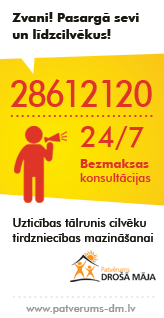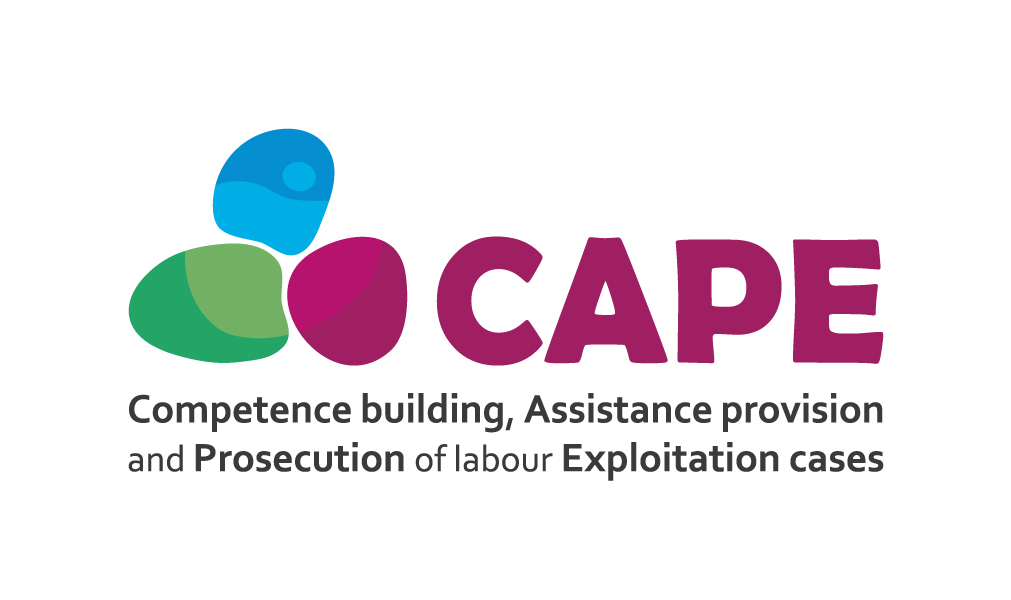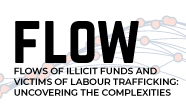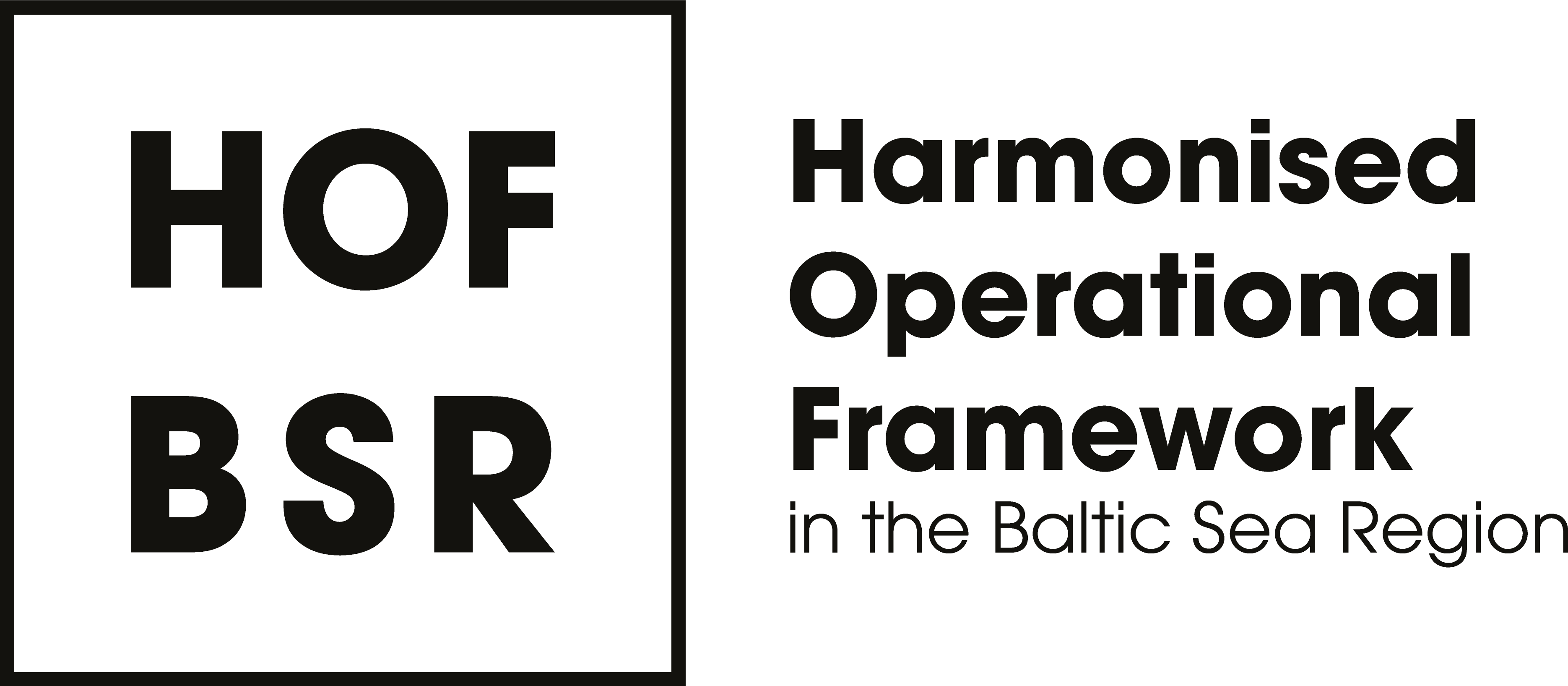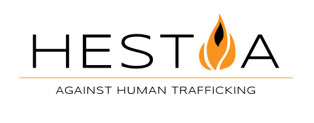Ms Stabiņa says: "When starting to work on the development of the project proposal in 2013, Latvia was almost the only country with the practice, information, understanding and knowledge of what sham marriages are within the context of human trafficking. Other partners approached to cooperate in the project had less understanding and experience in the issue."
The initiative for the study came from Latvia, because we had identified victims who received assistance, and there had already been criminal proceedings initiated by the police. The project research was conducted in five countries - Latvia, Lithuania, Estonia, Ireland and Slovakia*. After two years of work on the Project, the main findings have been highlighted with respect to the phenomenon of sham marriages in relation to human trafficking, and a new term "exploitative sham marriages” was developed.
Why do we need the new term "exploitative sham marriages"?
"It’s not quite right to say "human trafficking for the purpose of sham marriage" Why? Because a sham marriage is a marriage concluded between a European Union (EU) citizen and a third country national with the sole purpose of the EU citizen receiving financial benefit and the third country national obtaining the opportunity to legally stay in the EU, namely, receive a residence permit. It is a crime against the state, which should be addressed by all Member States," L.Stabiņa explains.
Criminal liability is prescribed in Latvia for both sham marriage concluded in Latvia and marriage concluded by Latvian nationals abroad. When the amendments to the Criminal Law took effect in 2013, such statutory regulation was quite a unique achievement within the EU context, because no other EU Member State has such regulation. There are countries where criminal liability is prescribed for concluding sham marriages only in the territory of the origin country. In Latvia, for a person who commits provision in bad faith with the possibility to acquire the right to stay in the Republic of Latvia legally, other Member State of the European Union, Member State of the European Economic Area or Swiss Confederation, the applicable punishment is deprivation of liberty for one to three years, and up to five years if it has been committed for the purpose of acquiring property or if such a possibility is ensured for two or more persons, or if it has been committed by a group of persons.
"In our opinion, the purpose of this Section of the Criminal Law is broader - not only to punish for knowingly concluding a sham marriage, but also to prevent, deter persons from seemingly easy and lucrative profit - to travel abroad, conclude a sham marriage, and receive money therefor. It is incorrect to express the mass media opinion that women are victims because they have not received the money promised for concluding a sham marriage. If a woman or man has knowingly agreed to conclude a sham marriage for a particular sum of money, which they have not received, then such person, in any case, has committed a crime."
Nevertheless, during the Project study it was also recognised that not all sham marriages are exploitative sham marriages, and not all exploitative sham marriages are trafficking in human beings.
"Exploitative sham marriage" is a term that concurrently entails both subtler forms of human exploitation, most often being interpreted as domestic violence, and more severe exploitation forms that may be recognised as human trafficking.
Ms Stabiņa also admits that the phenomenon of sham marriages is very multifaceted phenomenon, because most often women with mental disabilities, serious health problems, and living in poor conditions that do not allow them from critically assessing marriage or job offers and their consequences, and are thus knowingly recruited for a sham marriage and subjected to exploitation. Recruiters especially target young women in financial difficulties, those who lived in orphanages, with long term dysfunctional family backgrounds, and the socially excluded. "Marriage is a serious commitment. We should specifically also assess the vulnerability of a person in the context of a sham marriage. We must not judge and say it’s her fault. All cases are individual, so an individual approach is necessary for each case. It is impossible to unambiguously say that these women are criminals, –whilst others are victims."
Ms Stabiņa emphasises that the HESTIA Project was not focused on exploring and analysing sham marriages: "The key focus was sham marriages, which are specifically related to the abuse of a person. Various cases have been studied. For example, a woman has knowingly consented to conclude a sham marriage, has travelled to a certain country for that purpose, but is not getting paid and is exposed to exploitation. It might be any domestic exploitation, for example, a husband is sexually abusing her, subjecting her to domestic servitude. On the one hand, it might be difficult to identify elements of human trafficking in such a case. In other cases, women are offered a job – baby-sitting, public catering or cleaning sectors. The real reason for bringing her to the destination country, namely, to conclude a sham marriage, is announced to her only after her arrival. If she refuses to conclude a sham marriage, she is coerced, usually also followed by exploitation and violence.
It is difficult to group all these cases under the sole term " trafficking in human beings”, therefore the researchers have determined this new term "exploitative sham marriages" to capture both the cases when a sham marriage involves some elements of human exploitation, and also cases when a severe form of exploitation is present, namely, human trafficking.
An actual case - a girl arrived in a country to work for a Pakistani family, where she is employed as babysitter and domestic servant. She has to babysit, clean the house, and cook. She typically works 20 hours per day. The family has friends, Pakistani, who regularly visit. During these visits the woman is sexually abused. This results in one of these family friends choosing her as his wife. She is delivered to that man, but it does not mean that she is released after the marriage. She continues working, and sexually serving her husband against her will. And in this case the sexual relationship has been extremely aggressive.
Complex issue requiring a complex solution
"The concept of trafficking in human beings is clearly defined in legal acts: human trafficking means the recruitment, transportation, transfer, accommodation, and concealing of persons, by means of the corresponding tools - coercion, violence, threats, deception, abusing the vulnerability of a person - for the purpose of exploitation. The purpose is exploitation. However, as regards to sham marriages, the purpose is not always the exploitation of a person. Most often the aim is for the third country national to obtain a residence permit. A sham marriage is concluded, but a person is not ensured with normal living standards or she is not allowed to return to her country of origin. Such sham marriage applies the same means as in human trafficking - restricted personal freedom, papers taken, a person is treated violently, exposed to emotional and physical influence, and there are also cases of being coerced to recruit other girls for sham marriages."
"This problem is complex and it is impossible to combat this phenomenon without due research, educating specialists and raising public awareness. Without understanding and the ability to identify such cases it cannot be prevented, combated or restricted. The problem continues and the illegal business of sham marriages continues to flourish and profit organisers, middlemen and recruiters of sham marriages.”
Issues regarding the grooms of sham marriages, organised groups implementing and profiting from sham marriage schemes, are still on the agenda. The study mainly addressed victim-related issues - who the women are, their social status, why they consent to a sham marriage, how they get involved in sham marriages, and how a sham marriage becomes an exploitative sham marriage.
Ms Stabiņa reveals that these are mainly young women with unfavourable life situations - poverty, seeking to escape awful living conditions, and unemployment, and often sufferers of mental health disorders.
"We often discuss this aspect of consent - a woman has consented to conclude a sham marriage. We should understand that a personal choice is a limited concept, because in many cases these women are not coerced, no violence is exerted, they are not kept behind bars. And you might say: "But then she could have escaped!" She couldn`t escape, because she is afraid, she does not know where to go, who to talk to and what to do, she does not know her rights, and does not speak the local language. It is like entrapment created by the situational context. A woman can leave, but she is not leaving. But in any case, personal consent cannot justify her further exploitation”, Ms Stabiņa concludes.
Reference information:
- Exploitative sham marriage is a form of human trafficking. To identify the abuse of a person as human trafficking, the following three conditions should be met: actions, means applied, and purpose of exploitation.
- In cases of exploitative sham marriages, the victim is recruited (communication with a person via social networks, a person was addressed face-to-face by acquaintances), transported (a ticket is bought by organisers and, as a rule, sent via e-mail), delivered to third parties (a person and their accompanying person are most often met at the country of destination by a groom of a sham marriage or their acquaintances, or the organisers of a sham marriage), concealed or accommodated (usually a person is accommodated at the groom of a sham marriage).
- Means applied: fake job offers, concealing that the actual purpose is a sham marriage, or making a person think that a genuine marriage would be concluded. The vulnerability of a person is used (most often the state of deadlock of a person in a foreign country, when a person does not speak the local language, does not know their rights, is afraid, persons are often moderately or severely mentally disabled), threats, violence or, in separate cases, the dependency of a person upon a certain close person who delivers a person to a sham marriage.
- The purpose of exploitation is, by recruiting a person into a sham marriage, for a third country national to obtain a residence permit in the European Union, which mainly, within the scope of a shame marriage, continues as sexual slavery and domestic servitude, as well as using the identification documents of a person to obtain loans and credits, and forcing them to commit crimes - recruit other women into sham marriages.
- Exploitative sham marriages include the same means of controlling a person as in the case of trafficking in human beings for the purposes of sexual abuse and forced labour: threats, psychological control, social exclusion - deprivation of personal freedom, physical, sexual and economic violence, control of a person, debt bondage, and removal of ID papers.
*The project research with financial support from the European Commission was implemented in five countries. It was conducted by the following project partners under the management of the Ministry of the Interior of Latvia: NGO "Shelter ‘Safe House’" (Latvia), NGO "Living for Tomorrow" (Estonia); NGO "Caritas Lithuania" (Lithuania); Immigrant Council of Ireland (Ireland); Ministry of the Interior of Slovak Republic (Slovakia); Results of the study were summarised by the European Institute for Crime Prevention and Control of the United Nations (HEUNI) (Finland)
This publication reflects the views only of the author, and the European Commission cannot be held responsible for any use which may be made of the information contained therein. Grant Agreement No. HOME/2013/ISEC/AG/THB/4000005845. The implementation of the HESTIA project was started on 1 January 2015 and will continue until 31 December 2016. #HESTIA_THB https://ec.europa.eu/anti-trafficking/
Information published by (in coordination with the editorial board of apollo.lv): Rasa Saliņa, Public Relations Specialist of the HESTIA project, e-mail: rasa.salina@gmail.com




